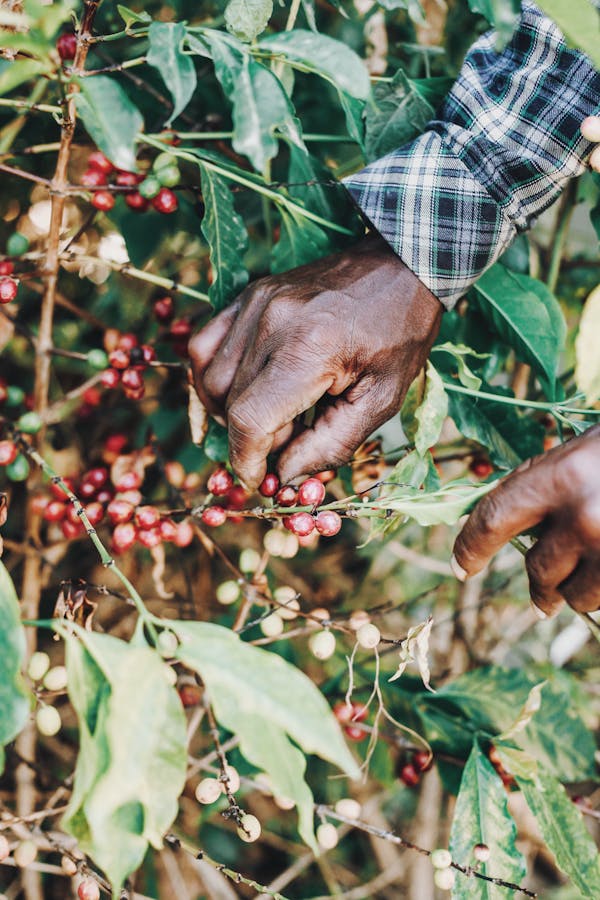Organic coffee means no traces of synthetic chemicals in your cup of joe. And that’s great for you and the farmers who grow it.
However, the certification process is often more expensive than the gain on sales warrants so many quality farms choose not to pursue organic status.
Fortunately, the market has responded to consumer demand with organic options available.
Nectar of Life
Founded by Martin, this local coffee company is the first to offer organic, fair trade, and shade-grown coffee in the area. It also donates 20 percent of proceeds to a slate of hand-picked animal rescue organizations. We especially love their flavored coffees, which use real ingredients, like spices and dried fruits, to achieve a sweet flavor without masking the natural taste of the coffee beans.

Unlike conventional crops, organic farms prioritize soil health. They prevent erosion by planting trees and utilize agroforestry, combining tree cultivation with the harvesting of coffee. This system reduces the need for synthetic fertilizers and helps sustain biodiversity. It has been shown to improve coffee quality and increase yields, as well. Find out more at Nectar of Life Coffee.
Gratitude
Organic coffee beans are cultivated without any synthetic pesticides or chemical fertilizers. This allows the beans to develop naturally and retain their natural, rich flavors that you love in your cup of joe. Organic farmers do not use chemical products on their land either, which protects the surrounding environment and neighboring crops.
However, there are 25 million small coffee farmers around the world who cannot afford to pay for an organic certification and do not see it as a necessary investment. In fact, many quality farmers have opted not to pursue an organic certification because of the additional costs they are faced with, such as adapting to climate change.
By purchasing our certified organic, fair trade coffee you are allowing these smaller producers to continue growing their deliciously high-quality beans while supporting them financially as they adapt to change. In addition to this, you are also helping to ensure a safe and healthy environment for you, your family and your community.
Breathe in
As a coffee drinker, you probably take for granted that your morning cup of joe is safe and healthy. But the truth is nonorganic coffee contains harmful chemicals sprayed on the beans during their growth that can linger in your cup.
These harmful chemicals put farmers, local communities and ecosystems at risk. They also run into nearby water sources, polluting the drinking water of those living in the community.
Organic farming is much healthier for the environment and everyone else involved. Growing in partial shade with the aid of natural wildlife habitats helps minimize soil erosion and weed control. And the lack of harmful fertilizers and chemicals is better for the soil, allowing it to keep its full nutrients and delicious flavor.
When you choose to purchase and consume organically certified coffee, it’s your choice to affect positive change in a chaotic world. It might seem small, but all significant change starts with a single action.
Take a moment
There’s a lot going on in this big, crazy world. Sometimes it feels like one person can’t make much of a difference. But, all significant change begins with one choice. Choose organic and start your day with a cup of coffee that supports farmers who are treated fairly.

Organic farming practices encourage biodiversity and respect the natural ecosystem. They prevent soil erosion, enrich the soil’s nutrients and avoid overuse of chemical fertilizers.
When choosing a coffee that’s labeled as organic, look for single-origin. This allows you to discover a unique taste for each region’s terroir. You can also find a roaster who prioritizes sustainability and fair trade. For example, Counter Culture in Durham, North Carolina has both organic codification and direct trade certification. They also use a variety of internal programs to reduce their carbon footprint. Other examples include Grounds for Change in Seattle, Washington and Death Wish Coffee in Saratoga Springs, New York. The best part? They’re backed by a money-back guarantee.
